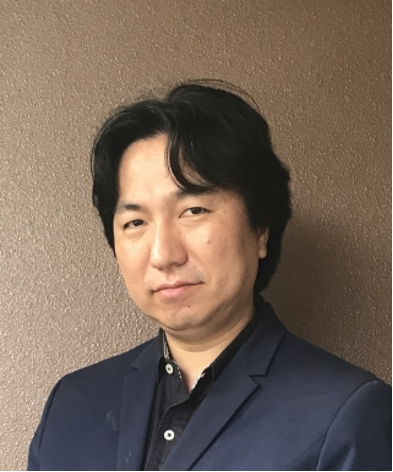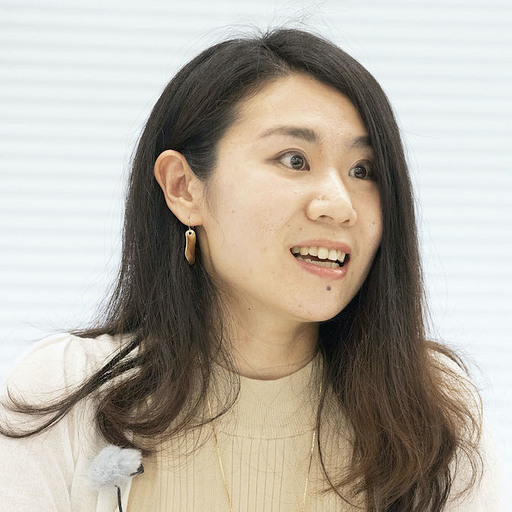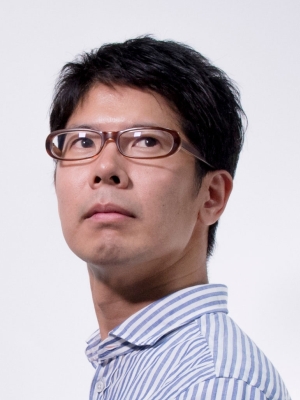Invited Speaker 1
Prof. Takeshi Ohkawa
(Research and Education Institute for Semiconductors and Informatics, Kumamoto University)

Title: Toward Model-driven Development of Hardware-Software Cooperative System for Robots and IoT Systems
Abstract: Robots and IoT systems are pivotal in addressing societal challenges by collaborating seamlessly with humans. The hardware-software cooperative system is a key component, demanding high-performance information processing at minimal power consumption. Achieving heightened intelligence necessitates application-specific hardware processing through FPGA (Field Programmable Gate Array) or hardwired circuits (LSI), surpassing energy efficiency compared to traditional microprocessor-based software processing. To expedite the design process while ensuring safety and reliability, a systematic approach is indispensable for developing these cooperative systems. Model-driven development stands as a critical enabler in this pursuit.
This presentation delves into the technical complexities and challenges associated with realizing model-driven development for FPGA/LSI-software cooperative systems, encompassing the latest trends in semiconductor LSI especially the 3D stacking chip technology, FPGA design, and software technologies. Join us as we explore the path toward unleashing the full potential of hardware-software cooperation in robots and IoT systems.
Bibliography: He is an associate professor at Kumamoto University, Japan. He received his M.E. and Ph.D. from Tohoku University in 2000 and 2003 respectively and was engaged in research on dynamically reconfigurable FPGA systems at Tohoku University. He joined the National Institute for Advanced Industrial Science and Technology (AIST) in 2004 and started research on distributed embedded systems. He had been working in TOPS Systems Corp since 2009 and joined Utsunomiya University in 2011, and Tokai University in 2019. He joined the Research and Education Institute for Semiconductors and Informatics, at Kumamoto University in 2023. His current research interests are the design technology of a 3D stacked LSI system and FPGA to realize low-power robots and vision systems. He is a member of IPSJ, IEICE, ACM, and IEEE.
Invited Speaker 2
Dr. Yuri Nishikawa
(National Institute of Advanced Industrial Science and Technology (AIST))

Title: In the Trenches of Smart Cities: Resident-Centered Mobility Services Using Local Service Data for Real Urban Problem-Solving
Abstract: In recent years, new smart mobility services and MaaS platforms that allow users to book and pay for multiple transportation modes have been emerging. However, simply introducing new technologies is not enough to make new mobility services sustainable in local communities. It is important to understand where mobility challenges arise in a community and what motivates residents to move, and then design a mobility experience based on this understanding. When designing a mobility experience, it is particularly essential to consider other local services (e.g., supermarkets, restaurants, and hospitals) and to effectively leverage live data from these services. We have investigated mobility services in smart cities around the world, and we have conducted pilot tests and workshops for residents in Kashiwanoha Smart City, Japan, including the delivery robot, signage service, and short-distance mobility service. In this talk, I will introduce the trends of mobility services in smart cities in Japan and abroad, my experiences with various mobility services especially in San Francisco where I have been on a long-term business trip, and the lessons learned from the pilot tests in Kashiwanoha, as well as the future action plans.
Biography: Dr. Yuri Nishikawa is the Senior Researcher at the Digital Architecture Center, AIST, specializing in computer systems, system architecture, service applications, and smart cities. Since October 2021, she has been engaged in the research and development of mobility system platforms for smart cities.
Dr. Nishikawa obtained her Ph.D. in the Graduate School of Science for Open and Environmental Systems from Keio University in 2011. Before joining AIST, she was involved in research and development at Panasonic Corporation, focusing on information appliances and systems and industrial application software using high-performance computing. A member of IEICE, IPSJ, and JSAI.
Invited Speaker 3
Dr. Shiro Kumano
(NTT Communication Science Laboratories)

Title: Personalized affective computing: How to combat model explainability, uncertainties in subjective judgment and response biases in estimating individual’s affect
Abstract: Affect has been studied in numerous areas, including product design, conversational agents, mental health, education, and decision making. Originally, many affect estimation studies targeted population level affect, such as affect perceived by an average person. In recent years, research on personalization has intensified and, as a result, faces several issues that were not as significant when looking at population averages. One is the ethical problem of inferring people’s internal minds, which can be considered the most personal, and therefore, for example, explainability of models is more important. The second is uncertainty in subjective judgment per se, namely that the same person does not always give the same rating to the same target. It is thus necessary to train and evaluate models based on the aleatory uncertainty. The last issue is biases in individual’s responses. In many cases, what we want to know is how a target person “perceives”. However, many methods use raw subjective ratings, which leads them to predict what the person would “choose” given a set of options. In this talk, I will present our recent work on these three issues.
Biography: Dr. Shiro Kumano received his Ph.D. degree in Information Science and Technology from the University of Tokyo, Japan, in 2009. He was an honorary research associate with the University College London, U.K., from 2016 to 2017. He is currently a senior research scientist with the NTT Communication Science Laboratories, Nippon Telegraph and Telephone Corporation since 2009, and a visiting associate professor at the University of Tsukuba since 2020. His research interests include affective computing, artificial intelligence, and cognitive science, especially in relation to modeling of facial expression and cognition of emotion. Dr. Kumano has served as a General Co-Chair at ACII 2021 and 2022, and serves as a committee member of AAAC since 2022. He is a member of IEEE, AAAC, IEICE, JSAI, and BMS.
